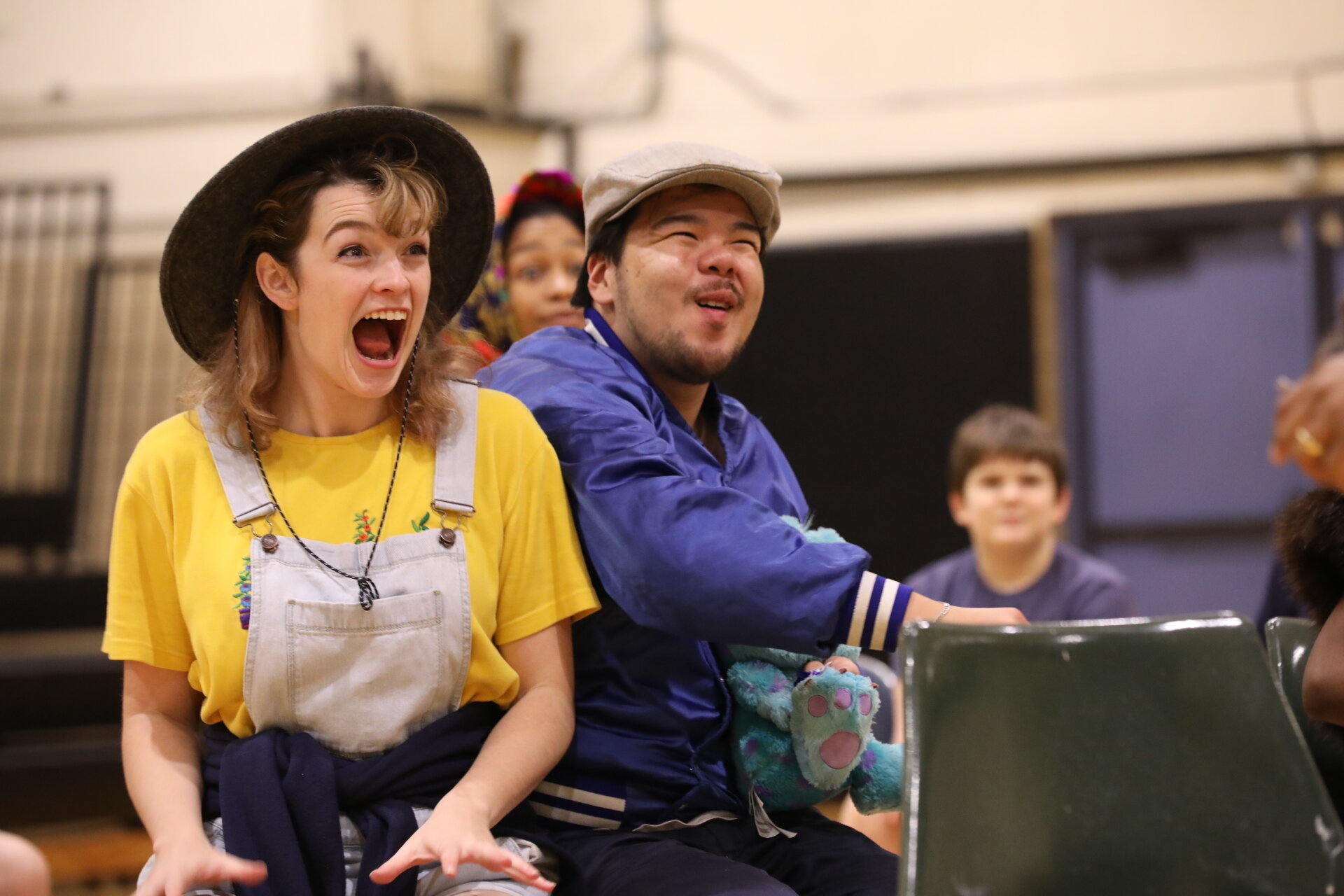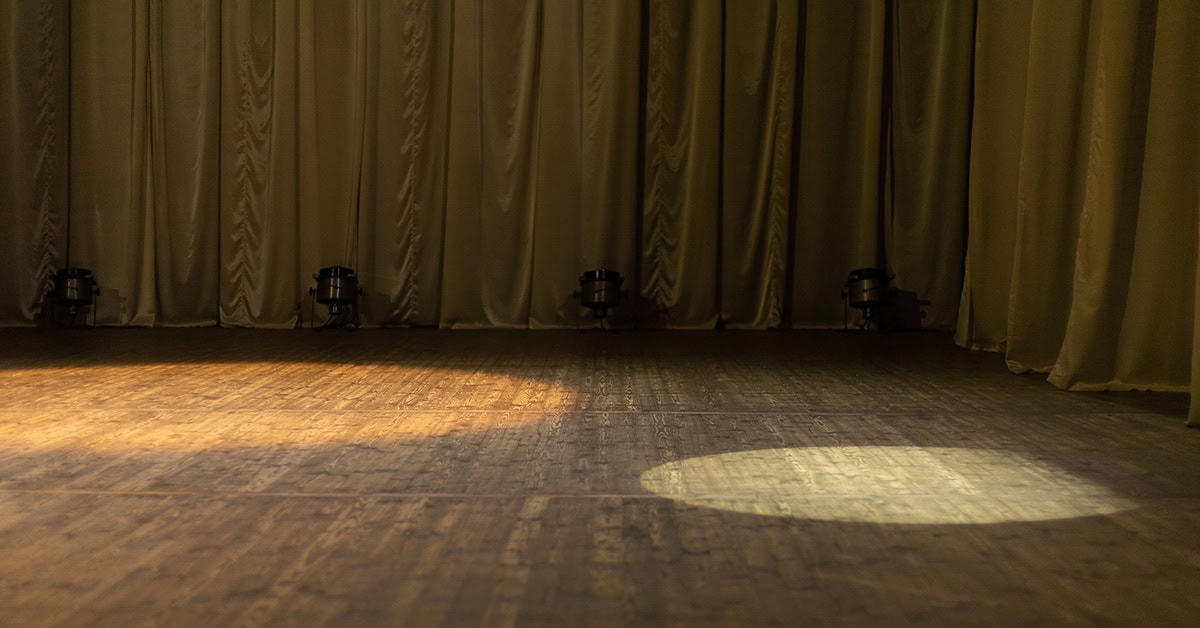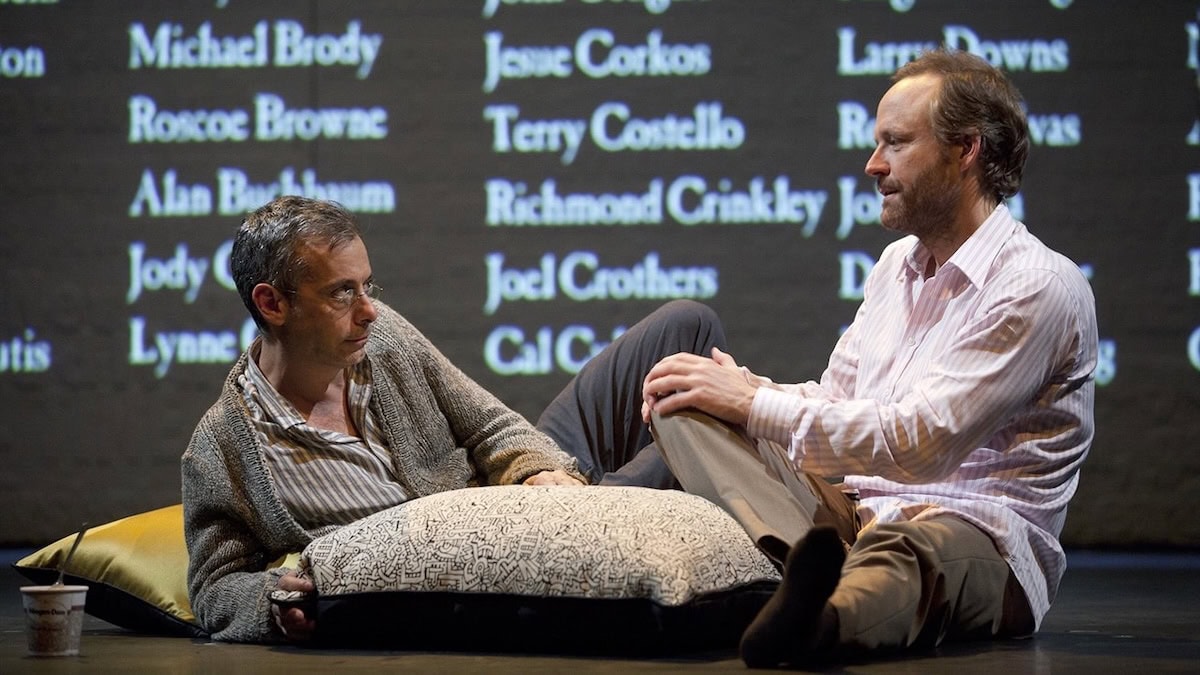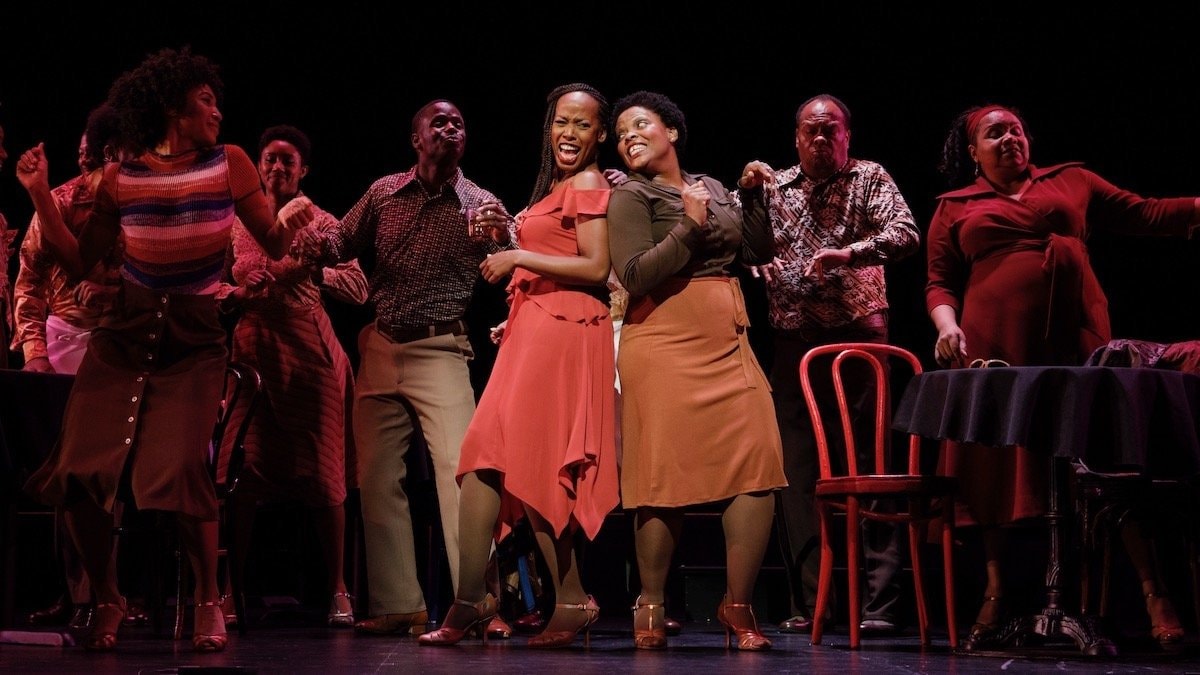
The following is a conversation with Tappan Wilder and Alejandro Rodriguez, who recently directed two of Thornton Wilder’s one-act plays: Childhood and The Happy Journey from Trenton To Camden for Playmaker’s Rep Mobile Unit.
…
TAPPAN WILDER [TW]: Alejandro, you’ve recently spent several weeks taking two of Thornton Wilder’s one-act plays all over North Carolina. My first question has to be: where did your van take you and your fellow players?
ALEJANDRO RODRIGUEZ [AR]: It’s been a ride. We’ve played 15 stops including a detention center, an alternative high school, libraries around the region, homeless shelters, and a 100-year-old amphitheater.
This is the 4th tour that we’ve done. Our eventual goal is for the mobile tour to reach all 100 counties in North Carolina. At first, you can imagine, the schools were interested in getting a free touring production to visit them, so when we started, most of our sites were schools. And as we began to think about the evolution of mobile, we wanted to prioritize audiences that we knew were not going to be able to make it to our theatre and who were unlikely to ever see a play. We decided to fill up our dance card with venues where we would be introducing people to the theatre for the first time.
For example, this year, we performed for the first time at a juvenile detention center. It was a big hit and as we were packing up the van, they said something a producer likes to hear: “Let us know about the dates for next year. We have four sites around the state, and we’d love to try to get you into all of them.”
When we visited an alternative high school, we arranged to come in the day before and lead a 50-minute workshop around ensemble storytelling. So much of Wilder’s storytelling in his plays leverages the audience’s imagination with a lean, resourceful, almost “poor theatre” aesthetic. The cast developed a lesson plan around these themes, thus initiating students into its special vocabulary. We also separated the students into trios — two actors and a writer-director in each. The writer-director was then given a prompt to write about a memory from their childhood or their family life. They composed a short etude, and then had the opportunity to work with the actors on the words. At the end, each group shared their work. This exercise was a wonderful primer for the students — a way into our rehearsal process for Happy Journey and Childhood — before they saw the show.
TW: Besides flat tires, did you run into any challenges on the road?
AR: Sure! No flats but several speed bumps and curveballs along the way. In the detention center, we got put in a gymnasium and as you can imagine, the acoustics were horrendous. But the chairs were all set up, so we made adjustments and told the actors “to lean into“ the diction. And then the students arrived. As a special treat, they had all been given bags of popcorn to enjoy as they watched the play. I didn’t want to be Scrooge and take the popcorn away, but with the rustling of the bags and the crunching of the popcorn and the terrible acoustics, it was a rough ride! This was one of our early stops, so we learned a lot about what we might be facing.
Another example was our stop in Fayetteville. We played their Arts Council and the Chatham County public library. When we started the library show, there were only 3 gentlemen there. But when folks figured out what we were doing, the audience slowly grew. Parents who had their kids in the children’s section heard that there was a play going on and grabbed their kids and brought them over. And these kids were some of our favorite audience members, because there’s so much “playfulness” in these plays that they picked up on. So, while the adults loved the poetry and the philosophy, the kids loved the actors’ synchronized body movements as the car “turned” or “came to an abrupt stop.”
TW: Can you generalize at all about how the plays were received by such a diverse swath of audience members?
AR: That’s the million-dollar question. It turned out that their reception was almost always positive. Despite very different settings and backgrounds, the universality of Wilder’s writing gave everyone a way into the work. I learned a lot about how different material lands on different audiences and what it has to say to different folks, and how important it is to share plays like these. I feel privileged to have been introduced to these plays through my education. I found myself thinking about all of the millions of young people who won’t — just because of their life paths — be exposed to it. And how much is there for them in those plays. It felt good to bring this material to folks who might not have encountered it otherwise.
TW: You’re saying there wasn’t push-back on the material?
AR: Exactly what I am saying. We didn’t really come up against any blocks or barriers.
In addition to the material, our cast was beautifully diverse — another thing Wilder’s plays invite, incidentally — so one of the things we had going for us was that our audiences were able to see themselves on stage. So whatever barriers there were around the optics of “this family doesn’t really relate to me” was mitigated by the fact that there really was someone in our cast that spoke to almost every experience.
Between plays, we choreographed a music and movement moment where the two men in the cast switched clothing and the two women in the cast switched clothing so that you saw a mirror — Arthur becomes Pa in Childhood; Pa in Happy Journey becomes Billy in Childhood; Beulah in Happy Journey switches clothing with Ma in Happy Journey to become Mother in Childhood; and Ma in Happy Journey then becomes Dottie in Childhood. The plays worked really well in tandem because the two casts were all but parallel with the exception of the actress who didn’t switch and played Caroline in both plays. This piece of entr’acte choreography opened the door for our audiences to see a bit of theatre magic. It not only helped the audiences track the transition between plays, but it also gave us that lovely symmetry of the children becoming adults and adults becoming children.
We had a conversation when we first talked months before I staged these plays, Tappan, around the way that Christianity shows up and is present in the work. I found that folks digested this element seamlessly and in fact found a lot to empathize with in the material.
TW: How about the feedback from audience members?
AR: Much of what the audiences spoke about post-sh
ow related to the relationship between the plays and their own lives. For example, an older African American woman came up to us after one show and said, “That play Childhood was trippy!” And I said, “How do you mean?” And she said, “You know, my daughter is 10 years old and keeps on telling me that she can’t wait for me to vanish. Just disappear. So, coming to this play tonight and seeing a play about kids who are dreaming that their parents are moving on was just a trip.” It’s amazing the way that Wilder’s writing connects individuals who are not only separated by race, but by time, geography… everything, and yet here’s this woman saying, “That’s happening to me right now in my living room!”
TW: I love that moment! It relates, I think, to how my uncle sought to craft characters who had a life of their own but were also part of the huge panorama of humanity. I think that’s my uncle’s genius — pulling it off without ending up with a bunch of clichés.
AR: And I’ll tell you this — It’s also because there’s such compression in them. Compression is a word I reflected on a lot watching these plays. He compressed so many layers of lived experience onto these works. Not every audience member understood everything that Thornton Wilder put on paper, but there was always enough there for audiences to be able to find themselves in some aspect of the plays. Now, I’d be selling you a bag of beans if I said that everyone understood, for example, the nuances of the different towns in NJ. For some audience members, the figure of Kate Kirby was unfamiliar because that’s not the way the matriarch of their family functioned, or functions. And yet, maybe they were able to gravitate towards Pa who really struggles to find words when he sees Beulah after their journey. He doesn’t say much until she finally asks, “Are you happy to see me alive?” The actor played it as if he was feeling very deeply, but as a man of that particular moment, he wasn’t going to come out with that emotional language. I guess I’m leaving this experience with a new appreciation for the way that Wilder threaded enough texture into each character and play that you can enjoy aspects of the play even if others are less familiar. There’s enough to grab onto.
TW: I hope you got some laughs! Was there, in fact, laughter?
AR: Childhood was a hoot. We played it like a comedy right up until the point where the family really starts connecting and learning from each other. We stayed in pursuit of the tone of Happy Journey the whole time. I think throughout the process I was really pushing the actors to find the buoyancy in that play—it is called The Happy Journey, after all. There were audiences who really enjoyed the ride with the ending sneaking up on them and hitting them hard. And other audiences who had a more somber experience and knew that something was up early on. But I have to observe that Wilder seeds serious stuff throughout his play. For example, in the funeral that interrupts the car ride Ma says, “We lost our Harold.” How much do we let Ma access some of the darker hours that she’s spent recently worried about Beulah, versus how much do we allow that to be played with a little more levity? That was part of the conversation throughout. In general, we had to work hard not to telegraph the end of the play from the beginning.
TW: I’ll give you an analogy. Our Town faces the same issue. If you let the third act loose and allow it to cast a kind of pall over the first two acts, it’s terrible. There’s a huge amount of humor in Our Town. All sorts of shenanigans. And so, I agree with you completely! There can be a lot of irony in Wilder’s treatment of love, but it’s nonetheless love — and serious business!
AR: That resonates. One of the adjectives that was used by multiple audience members was “sneaky” — In fact, we just got an email yesterday from someone who described the plays as “very specific and heart-felt work that sneaks up on you and becomes moving and exhilarating too. Well done.” That concept of sneaking — that’s exactly what Our Town does. And it’s amazing that Wilder was able to do the same thing in a shorter form.
The other thing that you said — love. As we get into season planning here at PlayMakers, we are feeling that audiences are hungry for communion and warmth and rapport and camaraderie — all the things that are in Thornton Wilder’s work. In this moment of intense division and polemics, people are thirsting for that moment in Happy Journey when Arthur apologizes for upsetting Ma and both kids hug their mother and she says, “Oh we can’t all be crying.” Watching the smiles just bloom on the faces of audience members — audiences of all colors of all backgrounds — was exhilarating. I was reminded that we are in a moment where it’s nice to see a family united and sharing a moment of joy and — you’re right — love. I’m not going to be embarrassed about using that word. He put love into his plays. Which, gosh darn it, I think it’s pretty radical at this moment to share some love with people.
We’re in a moment in which most plays we’re reading, especially by contemporary writers, are plunging headfirst into all that divides us. I think there’s usefulness in exploring those issues or social identifiers, the things that make us different, whether historically or contemporaneously. But personally, I appreciate that Wilder was willing to ask questions about the things that bring us together and not just the things that keep us apart.
TW: Thanks for the plug! My father used to say that his brother’s voice, so often dismissed as sentimental, was “authentic,” by which he meant that Thornton sought to capture feelings that are timeless.
Did we ask you how you first encountered Wilder?
AR: I first saw The Skin of Our Teeth at Juilliard when I was in the acting program, and thought, “wait, did they just bring a woolly mammoth out on stage?” And then, of course, I saw David Cromer’s Our Town at the Barrow Street theatre, and Arin Arbus’ production of Skin at TFANA. And then, a great acting teacher at Juilliard, Richard Feldman, who has a great passion for Wilder’s work, encouraged my mentor, Jesse Perez, who is now running the MFA acting at USD to look at the short plays. And it was Jesse who passed the two TCG volumes of Wilder’s short plays on to me when he was teaching at Julliard.
So that was my journey. This was my first opportunity to direct one of Wilder’s plays and knock on wood I hope to do more.
TW: Thank you, Alejandro. It has been a great pleasure to talk with you about your important work.
…
To purchase your copy of Childhood, click here. For performance rights, click here.
To purchase your copy of The Happy Journey to Trenton and Camden, click here. For performance rights, click here.
(Photos courtesy of PlayMakers Repertory Company. Photos by HuthPhoto.)

Recommended Shows for Drama Festivals

The Truth Behind… The Normal Heart

